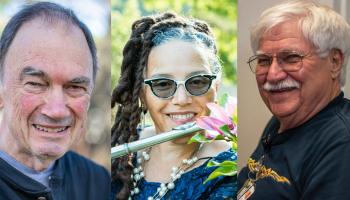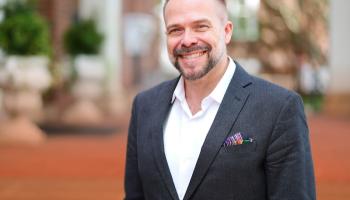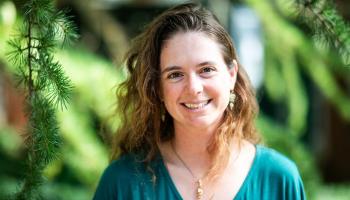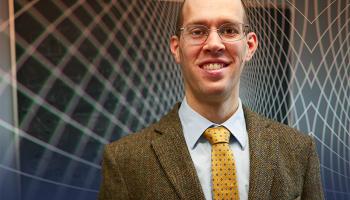Two A&S Professors Elected to National Academy of Sciences
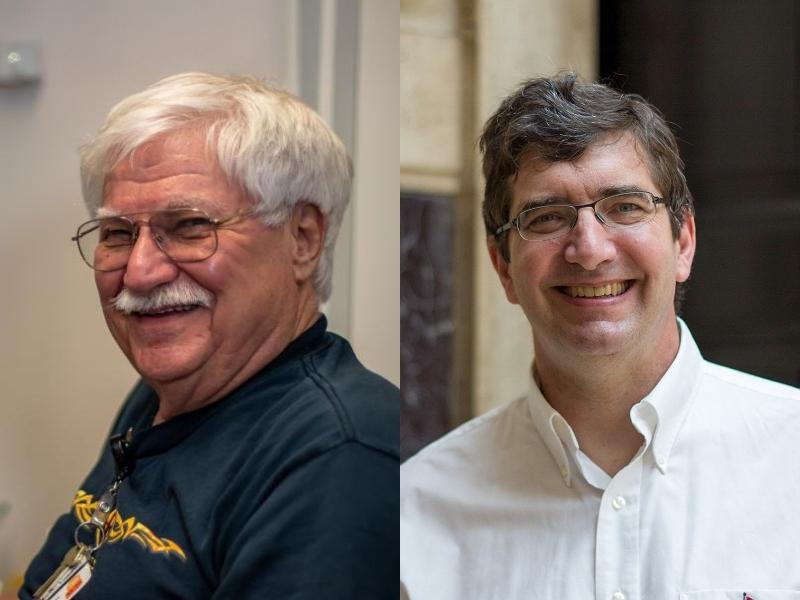
Marine scientist Scott Doney and developmental biologist Ray Keller are among the latest University of Virginia faculty to be elected to the National Academy of Sciences, one of the country’s most prestigious scientific societies.
Doney and Keller, Mariano A. Garcia-Blanco, and professor of microbiology, immunology and cancer biology with the UVA School of Medicine, join 120 U.S. based scientists and 24 international members elected this spring for their distinguished and continuing achievements in original research. Election to the academy is considered one of the highest honors in science.
Doney, the Joe D. and Helen J. Kington Professor in Environmental Change in UVA’s Department of Environmental Sciences, is known for his work on the global carbon cycle, ocean acidification and climate modeling. He joined UVA in 2017 after positions at the Woods Hole Oceanographic Institution and with NASA.
“It's an amazing honor recognizing the hard work of my team and my collaborators studying the ocean and how it's changing under human pressures including climate change and ocean acidification,” Doney said.
Recognition for Doney’s work comes at a crucial juncture for policy makers around the world.
“The scientific information is very clear, but the longer we delay in creating policy, the harder it’s going to be to stabilize climate, the harder it’s going to be to limit the damages form a changing climate,” Doney said. “It’s a challenge that needs to be addressed, and the longer we delay the worse the problems get.”
Keller, the Alumni Council Thomas Jefferson Professor of Biology, has taught at UVA since 1971. His research focuses on the mechanics of embryonic development, specifically how cells move and organize to form the body’s structures. Once considered controversial, his work has influenced fields ranging from developmental biology to bioengineering.
“Election to the NAS was a surprise. I am honored and grateful,” Keller said. “It comes long after we began the work that we are known for, back in the late 80s at Berkeley and continued here. It was unpopular with many at the time -- “Just not good science” was a phrase I remember hearing. It was a struggle, but we had strong supporters, and I had students and postdocs working with me who were very talented. They also had courage. They made all the difference.”
The National Academy of Sciences was established in 1863 to advise the nation on science and technology. It is a private, nonprofit institution and operates independently of the government. New members are elected annually by existing members.
Christa Acampora, dean of UVA’s College and Graduate School of Arts & Sciences, said the elections recognize both scholars’ longstanding influence in their fields.
“Professors Doney and Keller have each made foundational contributions to science that reach across disciplines and address pressing questions, from the future of our oceans to the origins of life itself,” Acampora said. “Their elections reflect the caliber of research taking place in the College and Graduate School and the extraordinary impact of our faculty in advancing excellence at the University.”
With the addition of Doney, Keller and Garcia-Blanco, UVA continues to build its representation within the academy, which currently has more than 2,500 active members, including roughly 190 Nobel laureates. Both scientists join a small but growing group of UVA faculty who have earned the honor in recent years.





